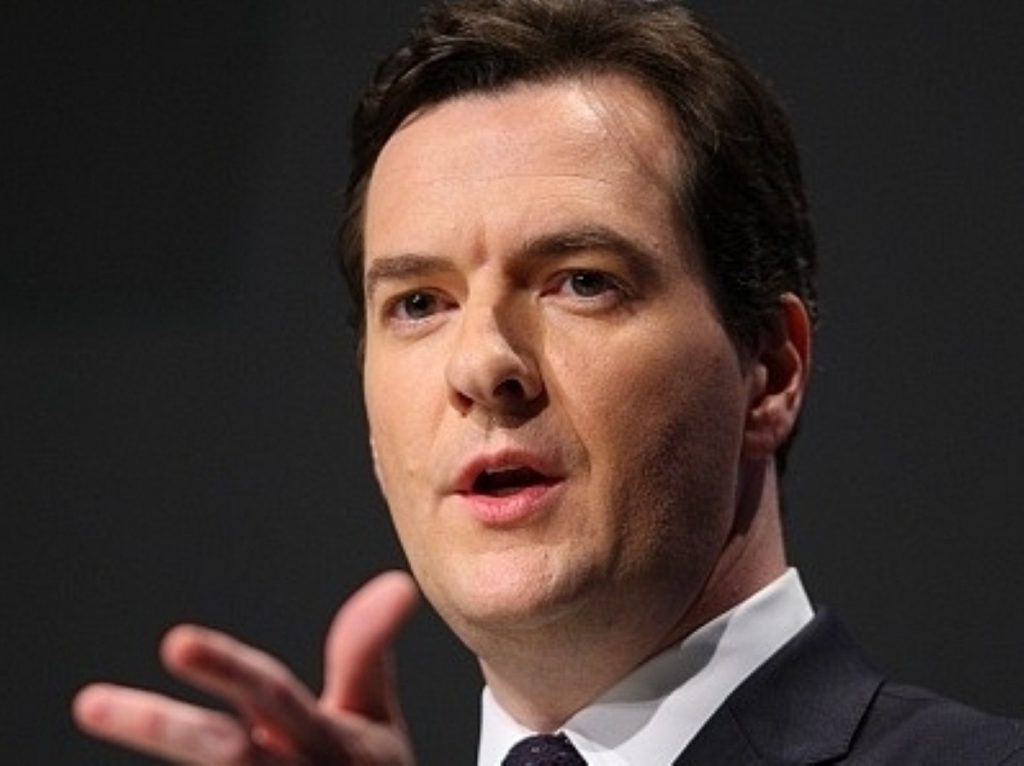The ‘Age of Austerity’ begins
By Ian Dunt
George Osborne and David Laws have delivered an early taste of battles to come with the first raft of details about spending cuts.
As a sweetener to critics, Mr Osborne pledged to ring-fence schools, 16- to 19-year-olds’ education and Sure Start from cuts.
But the bulk of the announcement mapped out some of the savings which would constitute Mr Law’s “age of austerity”.


Analysis: ‘Shockwave’ cuts are a long-term gamble
Speaking at a major press conference outside the Treasury with Mr Laws to his left, the chancellor said: “I told you we would cut wasteful spending and that we would do this while protecting the quality of key frontline services. Today I can tell you that we have delivered.
“We have conducted the fastest and most collegiate spending review in modern history.”
Mr Laws, chief secretary to the Treasury, said: “Public borrowing is merely taxation deferred and it would be deeply irresponsible to accumulate more debts for our children and grandchildren.”
Video: Osborne on spending cuts
Today’s announcement is just a prelude to things to come. Next month Mr Osborne will unveil his emergency Budget, in which the full scale of cuts are expected to be made clear for the first time. Later this autumn work will begin on a comprehensive spending review which will map out how much individual government departments can save.
“This is the first time this government has announced difficult decisions on spending,” Mr Osborne said.
“It will not be the last.”
A total of £6.2 billion was announced today.
The departmental cuts include:
Department for Business, Innovation and Skills: £836 million
Department for Communities and Local Government: £780 million
Department for Education: £670 million
Department of Transport: £683 million
Department for Work and Pensions: £535 million
Treasury and chancellor’s other departments: £451 million
CLG local government: £405 million
Home Office: £367 million
Ministry of Justice: £325 million
Department for the Environment, Food and Rural Affairs: £162 million
Department of Culture, Media and Sport: £88 million
Department of Energy and Climate Change: £85 million
Cabinet Office: £79 million
Foreign and Commonwealth Office: £55 million
Law officers’ department: £18 million
The devolved administrations face cuts of £704 million, but will be given the option of deferring their reductions until the next financial year.
Travel perks are also being severely restricted. Ministers will no longer receive a car and driver as one of the perks of the job, for instance.
“Ministers will be expected to walk,” Mr Laws said solemnly.
Civil service recruitment is being suspended, quangoes will be cut back and IT upgrades cancelled. It is thought that £95 million can be saved through IT cuts, while quango cuts can bring the Treasury £600 million.
£170 million will be saved from reductions in property costs.
Government consultancy and advertising budgets will be cut. Underused call centres and help lines will also face the knife.
It is not yet clear how many jobs will be lost as a result of the cutbacks. Mr Osborne said it would be up to individual departments to make these decisions but added he expected most to make headcount savings through a recruitment freeze across government rather than through redundancies.
He said: “Our belief… is that by showing Britain can live within its means we will actually be increasing employment.
“If we didn’t take action now we would be putting the stability of the economy in grave danger”.
Mr Laws said the “draconian” cutting of departmental budgets was deliberately harsh but pressed that the government planned to “cut with care”.
“Unless we send this shockwave… you won’t get the step-change in behaviour we expect,” he said. “We hope this won’t be necessary in future years.”
Alistair Darling, shadow chancellor, responded: “The Liberal-Conservative coalition have got to come clean on the detail of what these cuts mean. Today they dodged the House of Commons, because they didn’t want to have to explain the real impact on firms and families.
“Today George Osborne wouldn’t say how many jobs this package would cost.
“But it is already clear that these cuts will seriously affect support for business, mean less jobs for young people, and hit student places for this September.”
TUC general secretary Brendan Barber said: “The cuts announced today are deeply worrying. With the UK economy and the economies of our trading partners in Europe so fragile, this is not the right time to be cutting back.”
Gail Cartmail, Unite assistant general secretary for the public sector, said: “Within a fortnight of coming to office, the coalition government has taken a fundamental economic wrong turn by sucking £6 billion out of a still fragile economy.
“The government is paying its expected homage to the City and the so-called ‘markets’, instead of putting the full emphasis on maintaining jobs and economic recovery.”
The “vast majority” of the money secured by today’s cuts will go towards the deficit, but some £500 million will contribute to further education, apprenticeships and social housing, according to Lib Dem demands.
An Efficiency and Reform Group, chaired by Mr Laws and Cabinet Office minister Francis Maude, will oversee the implementation of many of the savings.

